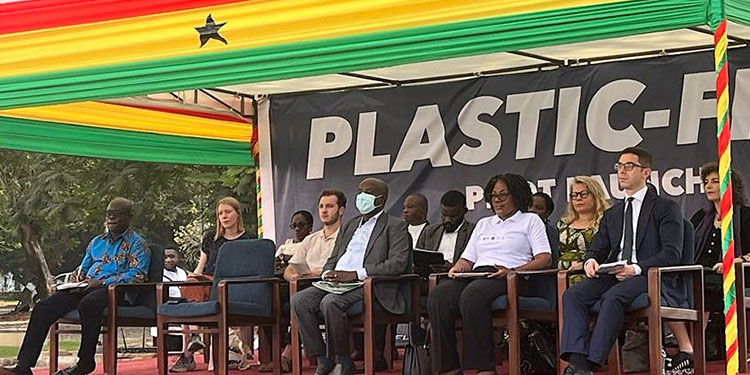
The Edible and Compostable Packaging Pilot Project has been initiated by the Ministry of Environment, Science, Technology and Innovation (MESTI) in association with the Norwegian Ministry of Foreign Affairs, Basel, Rotterdam and Stockholm (BRS) and the University of Ghana.
The project’s goal is to demonstrate the possibilities of edible and compostable packaging as a long-term substitute for food and sauce containers made of Single Use Plastics (SUP), which are being phased out.
Dr. Kwaku Afriyie, Minister for Environment, Science, Technology and Innovation, spoke at the ceremony on Wednesday in Accra and reaffirmed the government’s commitment to creating legislation that will lessen the impact of plastic waste on the nation.
Dr. Afriyie emphasized that the establishment of the Ghana National Plastic Action Partnership was evidence of the strong political commitment to decreasing plastic waste (NPAP)
The National Plastics Management Policy (NPMP), which has subsequently been adopted by Cabinet, was created as a result of the government’s commitment to combating the plastic usage, he continued.
“The objective of the policy is to among other things, grow the economy, create jobs and protect the environment to ensure sustainable development,” he Stated.
The Minister made it known that MESTI, with funding from the Norwegian Development Cooperation Agency, is collaborating with the Secretariat of the Basel, Rotterdam and Stockholm (BRS) Conventions to carry out a project on “Marine and Microplastics: Promoting the Environmentally Sound Management of Plastic Waste” (NORAD).
Many goods that are flexible packaging solutions created from edible seaweed and plant extracts that can biodegrade in just four to six weeks were on display at the opening of the Edible and Compostable Packaging Pilot Project.
